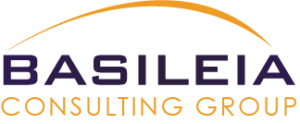Is your manufacturing facility secure? Or are you vulnerable to the many breaches that bad actors conduct today?
While profitability is the highest priority for most business leaders, adequately securing your manufacturing facilities ensures that those profits aren’t at risk – and keep on turning!

And that’s where modern security technology helps ensure your facility is always up and running.
Across the globe, many supply networks depend on the manufacturing sector, from vital infrastructure to the food and beverage industries. Millions of dollars are spent by manufacturers on resources, including equipment, tools, personnel, and goods, not to mention raw materials.
Although these resources are essential, they also put production facilities in danger. No matter how minor, every interruption in production can have a negative financial impact on supply chains and the manufacturer’s bottom line.
Manufacturing decision-makers and security personnel have a heavy burden: identifying and minimizing any risks that might harm a manufacturer’s operations, assets, finances, and reputation.
This blog discusses practical measures each company can take to safeguard its facility from various security hazards.
Do a risk analysis
A comprehensive, in-depth risk assessment is the first and most crucial step in securing any industrial facility. A thorough analysis of your facility’s vulnerabilities will help determine the level of security you should invest in. Similarly, this will inform you how to implement your security strategy.
Manufacturing companies are vulnerable to various dangers, including supply chain interruption, plant security breaches, and worker accidents. Keep in mind that hazards don’t just exist inside the boundaries of your site; you also need to consider regional and global threats in addition to local ones.
Consider newer security and safety hazards categories when evaluating your manufacturing plant. With so many industrial processes, including manufacturing technology, it’s crucial to recognize cyber and physical security hazards.
Manufacturing industries, which have a higher risk of workplace accidents, prioritize worker safety. An industrial plant must therefore evaluate the hazards to health and safety.
Create security procedures for your industrial facility
The fundamentals of perimeter fencing and access controls are only the beginning of adequate physical security in a facility or factory. It would be best to implement thorough safety and security protocols for all staff members using your risk assessment results to ensure your industrial site is secure.
It will be easier to secure your facility if you have security standards in place, but you must also ensure they function correctly. For this, you must conduct routine penetration tests on your facility; conduct these secretly and only after receiving the written consent of corporate officials.
These tests will evaluate the plant’s overall security and ease of unauthorized access. Testers will note any unauthorized access and submit their findings to strengthen the holes to thwart further attempts.
Another critical factor is managing the security risk of persons entering and leaving your property. Depending on what they do and where they need to be, offer your employees different levels of access control. For instance, certain staff employees would only have access to storage places if required as part of their duties. Establish comparable rules for guests, and ensure they are always signed in and accompanied by a staff member.
Install physical safeguards
With all this in mind, let’s move on to physical security measures you can employ to safeguard your plant. A secure perimeter, including a fence with gated or watched entry points, is a good idea for industrial buildings. That’s significant for any vehicles that enter or leave your property, especially those bringing in raw materials or equipment or transporting finished goods.
One of your property’s most vulnerable areas is where cargo trucks load and unload their cargo because it is a genuine hotbed for cargo theft. It’s crucial to install additional security measures here, whether they take the form of manned guards, gated entryways, or more surveillance cameras. Workers must approve shipments and deliveries to track lost items and account for them.
Standard security measures should be in place after you enter the building, including access-controlled doors, CCTV surveillance, and alarms. Also, ensure that the illumination is appropriate for your video surveillance. It is worth considering whether you should install thermal cameras to support night monitoring if there are changing lighting conditions, for instance, as may occur with outdoor cameras.
Leverage analytics
With intelligent video analytics, changing your security cameras from a reactive recording tool into a proactive incident alert system is also feasible. Analytics can swiftly analyze footage to find an abnormal activity that active security personnel would miss and are simple to integrate into many different camera types.
Operations workers, who are multitaskers, frequently take responsibility for a manufacturing plant’s security. Analytics can ease the pressure on overworked staff by alerting them to activities that need monitoring, including the presence of individuals or cars. Also, they can eliminate false alarms brought on by wind-related activity, such as moving trees or tarpaulins.
Robotic guarding is a solution for high-risk regions that staff employees cannot reach. These robots with cameras can patrol dangerous places, and employees can watch the recorded film to ensure the environment is secure.
Regardless of your security methods and measures, a redundancy network is an essential backup. A backup security system protects your site against a wide range of hazards if your primary security systems go down for any reason.
Safety and health in the workplace
Together with protecting your facility, your security measures can promote the health and safety of your personnel. Consider the nature of your manufacturing processes while assessing risk.
For instance, do you work with fire, dangerous chemicals, or combustible materials? If so, consider suitably fortifying your plant to reduce the danger of an accident. Sensitive fire safety systems, frequent fire drills, and blast walls are a few examples of how to do this.
Similarly, your crew must have the proper safety gear, training, and protective measures in place, whether you employ power tools, heavy machinery, or other types of equipment.
Security for industrial plants
Although you may not be aware of it, your video surveillance system can be a valuable tool for establishing and upholding health and safety standards in your organization.
Using cameras, operations staff, and security workers can monitor what’s happening around your facility. The team can immediately act if anything seems out of the ordinary or unsafe (such as a broken production line).
By detecting anomalies or deviations that busy workers might miss, intelligent video analytics might help make this process more effective. Techniques like color and motion detection can see when machinery is not moving as it should or if there is an impediment, and color detection can notify if someone is not wearing a yellow vest.
IT for manufacturing and cybersecurity
Both current security systems and the majority of production processes are, to some extent, automated. Given how heavily your infrastructure depends on technology, it is critical to give cybersecurity threats the same amount of consideration as physical security issues.
Your SCADA system (Supervisory Control and Data Acquisition Systems) is one area to which you might pay particular attention. Industrial control systems (ICS) and SCADA collaborate to give manufacturers real-time information and analysis on the activities and processes taking place in their plants.
Manufacturers might use these systems to collect data and remotely manage operations, which integrate hardware and software.
While SCADA breakdowns have significantly more severe repercussions, commercial cybersecurity breaches result in annoying outages and some financial losses. Because SCADA is used to operate crucial infrastructure, a hack might seriously jeopardize the security of your personnel, industrial processes, and supply chains.
Protecting your facility, reputation, and profitability
Like the last example, a security system outage might leave your property incredibly insecure if your plant depends on it. Implementing strong firewalls and virus protection will safeguard any other data storage systems you might have, such as those for payroll, money, and employees.
Conduct frequent penetration testing, set up cybersecurity standards, and ensure you have a backup network in case of a hack, just like you would with physical security.
Ready to Learn More
Basileia’s innovator team has extensive experience implementing modern security solutions that help companies secure their business and protect them from disrupting operations.
If you’re ready to innovate and secure your business, contact Basileia Consulting Group (BCG) by calling 949-329-3524 or via our contact form. Our expert team can evaluate your needs and requirements and recommend the best security solution for your company.
About the Author
Basileia Consulting Group assists other ERP software resellers and consultants with challenging implementations. To better ensure the successful adoption of ERP software across the entire company, we expanded the scope of our service offering eight years ago to include the complete suite of Microsoft business tools. We have established a name for ourselves in the industry as the people your software partner should contact whenever things go wrong.




